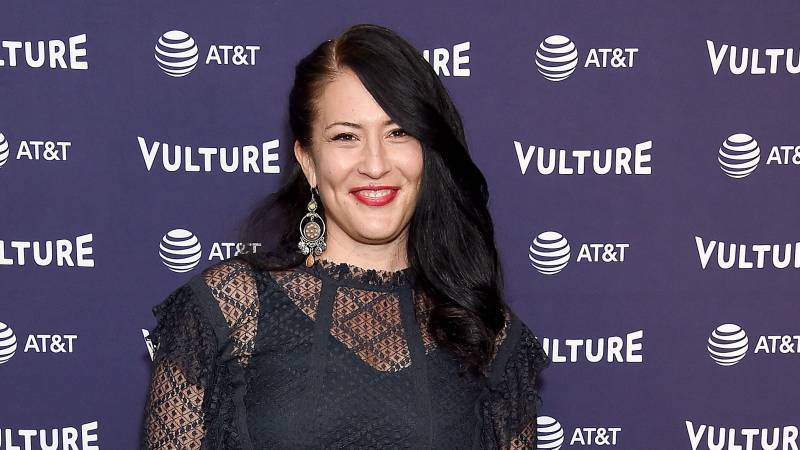As the 24th poet laureate of the United States, Ada Limón is an ambassador to the world of beautiful words. Her poems use clear, everyday language. But they have as much literary heft as they do accessibility. Limón has written a half dozen books of poetry, and her most recent work is "The Hurting Kind." She's also the winner of the National Book Critics Circle Award for poetry and many other accolades.
Limón was born in Sonoma County, and now lives among the hills and horses of Kentucky. KQED Forum host Alexis Madrigal spoke with Limón about her new post as poet laureate and how to read a poem.
The following excerpts have been edited for length and clarity.
ALEXIS MADRIGAL: In a 2008 essay, you were living in New York and pondering regional poetry and asking if you were, in fact, a poet of Sonoma. And then you said, "I think I would claim myself a California poet. This definition is too tight, and it smells like old wine." Do you see yourself now as a Sonoma poet?
ADA LIMÓN: To be honest, I think that the place I feel the most at home is in Sonoma. It does feel like a place where I deeply belong. But I also feel like there is a part of me that now that I've lived so many different places ... I do feel like there's this sort of sense that I belong to America. I think the landscape of the United States is something that I really feel connected to. And now that I've lived so many places in it, I feel like I can speak to that. But, Sonoma definitely still feels like home.
Do you feel coming from these different places, living in these different places, that contrasts stick out more?
I think that one of the things that I really love about being in different places, even just traveling, is that idea of getting to know the natural elements in each place. When I first arrived in Kentucky, I was really hoping to move back to California permanently, and then I fell madly in love and married my husband and I live in Kentucky and have learned to just love it.
But I think the way that I know to love something, or how I can figure that out, is to explore the natural landscape around me. A lot of the poems in the book are about me really figuring out the landscape around me and looking at the old barns and the incredible horse pastures everywhere. That was important to me to figure out — how to love a place, to name the plants and animals, that I'm surrounded by.
Let's have you read "A Good Story." This is from your most recent collection.
It's a poem that began for me at a place where I feel like there were so many poems that were dealing with trauma. And I think it's incredibly important that we write and read poems that are hard and that deal with the hard things. But I also really wanted to write about tenderness and be grateful for those moments that tenderness was offered to me. This is where that poem came from.
It made me think of a time my sister's ex-husband silently made me a bowl of macaroni and cheese, while I cried on my sister's lap. What is the literary infrastructure that makes that pack such a punch?
Thank you for that. The poem is in couplets and there are actually long lines in the poem that sort of allow for it to move a little faster.
The line length of a poem really determines the rhythm and speed of how the poem is read. A shorter line is going to be much slower if you think sort of Emily Dickinson, that's going to read much slower because it's got the breath in it.
That slight pause after the line break is going to make you read it slower and then a longer line is going to read a little faster.
You can think of Whitman and then sort of the mid-length line is more for conversation. You can think of Shakespeare. It's meant to be read a little fast, but then at the same time it's in couplets. So you're going to break after each of those couplets, which gives you that little moment of pause.
It has that sort of rhythm that goes back and forth.
The last line is then on its own, which kind of allows for it to stand out a little bit.
The other part of this poem is that it's dealing with time.
I had a student ask me, "How is it that you can go from the present moment into the past or into the future so easily in your poems?" And I said, well, this is going to sound weird, but I think time doesn't exist. I say my stepfather told me a story. And then he does this thing. But at the same time, it does feel like it's happening in the present moment because it begins with a hard day. And what does the hard day require? The hard day requires a good story and sometimes that good story isn't something that's happening now. But maybe it's a memory like you were talking about. The person that fed you macaroni and cheese.

